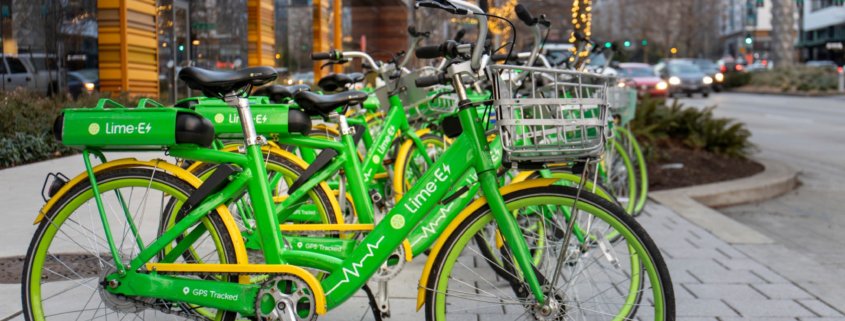Realizing the Potential of Bike and Scooter Sharing Systems
Jouke Peutz has split his life between the Netherlands and California. He loves living in the U.S., but his Dutch childhood instilled a deep love of biking. He’s pursuing that passion for biking, in collaboration with CalBike, with a research project to develop best practices and a general framework to improve the partnership between the public and private sector to aid disadvantaged communities through micromobility.
CalBike advocates for the inclusion of shared micromobility in public transportation systems. That will ensure that the cost remains affordable, that micromobility programs serve all neighborhoods equitably, and that there are cohesive support platforms and incentives for users. Jouke’s research will help us make a case for public micromobility.
CalBike collaborates with a researcher inspired by his Dutch biking roots
Jouke Peutz didn’t start a graduate degree in Community Development at UC Davis with a plan to focus on bikes. “I was very set on sticking with buildings since I came from an architecture background,” he says.
Then he took a class on bicycle infrastructure and design that called him back to a childhood where, he recalls, “I had all my freedom on my bicycle. I learned life lessons on my bicycle. I biked through the rain, the sun. I had a deep connection to my bike.” Now, Jouke says, “My whole research has oriented from looking at buildings to looking at bicycling. The funny thing is that they are very much connected.”
His grandparents still ride, regularly going across the border to Germany on their e-bikes. “The bike is what gives them their freedom, too,” he says.
He wants to bring that freedom to biking in the U.S., but he recognizes the challenge. “We’re trying to copy things from the Netherlands, but it never really works,” Jouke says. Intersections that “look Dutch” function very differently here because the U.S. has its own bike culture.
How shared micromobility can promote transportation justice in California
Jouke’s research project is titled “Facilitating market-based micromobility in disadvantaged communities in California,” and will look at how to bridge the gap between government and the private sector to better serve disadvantaged communities. Through a literature review and interviews with key stakeholders, he hopes to answer the question of how California state agencies can develop and coordinate micromobility in partnership with private operators.
Jouke’s research is more than an academic exercise. He sees it as a gateway to improving people’s lives.
“Transportation is a main factor in people’s life success, whether that’s healthwise or economicwise,” he says. “People who don’t live a wealthy lifestyle typically live in communities they get pushed into and they rely on public transportation to get work or groceries.”
He particularly wants to make sure that people in disadvantaged communities don’t get left behind in the transition away from carbon-based transportation. “What does that mean if you’re told you cannot drive anymore or need to buy an expensive EV?” Jouke says. “That’s where micromobility could play an important role.”
CalBike has helped connect him with stakeholders and supported him in his research. “We’re excited to see what Jouke’s research produces,” says Dave Snyder, CalBike’s Executive Director. “CalBike is focused on transforming the way we view micromobility. Bike sharing shouldn’t be viewed as an elite urban amenity but as an essential public transportation connection. Having evidence to show the benefits of micromobility will help us make that case.”
“The beautiful thing about bicycles is they connect the wealthiest people and the poorest people,” says Jouke. “I do really believe micromobility will be a big part of our future in transportation.”
Bike-share in danger in California
Unfortunately, California is in danger of becoming a state with no bike or scooter sharing. A bill moving through the California Senate, AB 371, would impose an unprecedented insurance requirement on all bike-share operators, including public transit systems and nonprofits.
Micromobility is the future, and we can’t let this regressive bill stop it before it reaches its full potential. Please email your California Senator today and ask them to vote NO on AB 371.
Micromobility and much more at the California Bicycle Summit
At the California Bicycle Summit, April 6-9, 2022, in Oakland, we’ll discuss equitable micromobility with Jouke and representatives from companies that provide bike and scooter sharing systems in California. You won’t want to miss that, plus 30 breakout sessions, bike tours, parties, and more. Register today.





